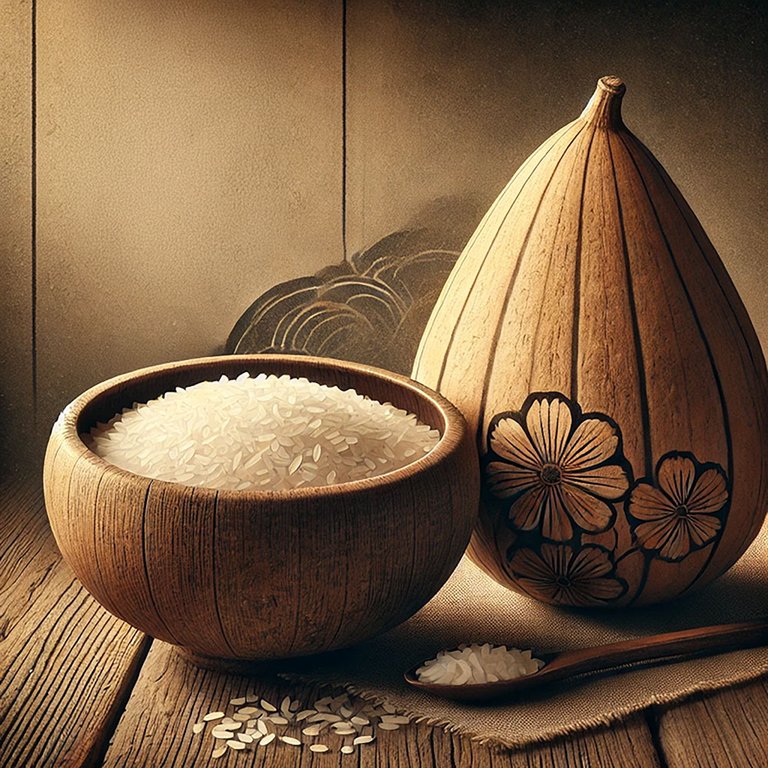According to the traditional Japanese calendar, we are into spring. Let's jump back nearly 350 years to see what one old poet was thinking about at this time.
haru tatsu ya shinnen furuki kome go-shō
a new year, yet my fortune remains:
nine liters of old rice
—Bashō


Bashō wrote this on or around the first day of the year 1684, which would be around now when converted to the Gregorian calendar. On the old Japanese lunar calendar, spring was the start of the year.
He is having some fun here, contrasting the new year against his old rice. Despite being quite famous by this point in his life as a poetry teacher, he embraced poverty, both for spiritual reasons and artistic ones. One of his few possessions was a gourd that had a capacity of around five shō, an amount that would be roughly equal to nine liters (roughly the same in quarts, for those allergic to the metric system).
Though it signified poverty, it also represented the freedom of having few possessions—making him feel rich. In fact, an early draft of this haiku had the line ware tomeri (我富めり), "I'm rich!"
This goes well with another haiku he wrote:
mono hitotsu waga yo wa karoki hisago kana
my world as light
as this rice gourd
The kigo (season word) here is haru tatsu (春立), "spring begins"
❦
 |
David is an American teacher and translator lost in Japan, trying to capture the beauty of this country one photo at a time and searching for the perfect haiku. He blogs here and at laspina.org. Write him on Mastodon. |
That is, me! If you like this translation, feel free to use it. Just credit me. Also link here if you can. ↩